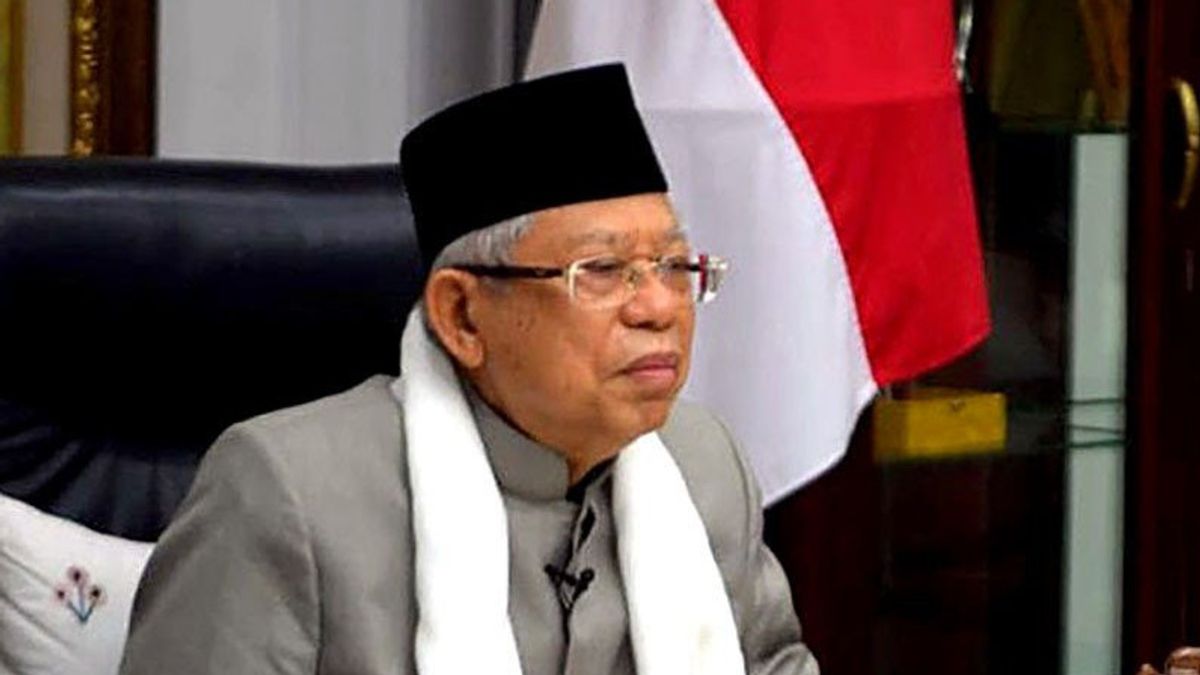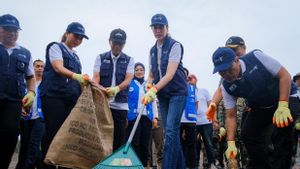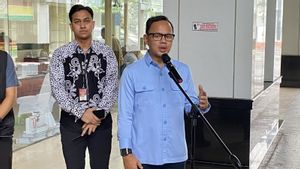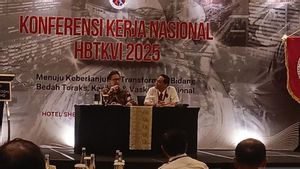JAKARTA - Housewives become agents of change to build family food independence to strengthen national food security.
This subject matter was discussed in a National food strengthening seminar entitled "Building Family Food Independence to Strengthen National Food Security."
This seminar was initiated by the Commission for Youth and Family Women, the Indonesian Ulema Council (PRK-MUI) together with the Indonesian Ministry of Agriculture and PT. Rajawali Nusantara Indonesia (RNI) was opened by Vice President Ma'ruf Amin who was also the keynote speaker.
"When the Indonesian nation is facing Covid 19, food security is needed starting from the family. Food security of this family will later become an estuary for the welfare of the nation," said Vice President Ma'ruf Amin in his remarks, Monday, May 3.
Meanwhile, the Chairperson of the MUI PRK Commission, Siti Ma'rifah said this activity was a form of optimism amid the COVID-19 pandemic situation. Women have an important role to play in helping food security starting with the family.
"The issue of food security is closely related to poverty, because in the context of poverty alleviation, food security is a key factor in reducing the poor population," said Siti Marifah.
The seminar was attended by approximately 1,000 online participants and some of them totaled 50 people who attended directly by following strict health protocols at the Grand Melia Hotel, Jakarta. Participants can follow through the official YouTube TV MUI account.
This seminar also presented the President Director of PT RNI, Arief Prasetyo Adi. Meanwhile, the General Chairperson of the Central MUI. Miftachul Akhyar represented the MUI leadership, and Jaenal Effendy represented the MUI DSN.
From the government side, Deputy Minister of Agriculture, Harvick Hasnul Qolbi shared knowledge about the importance of food security with the material "National Food Security Policy Towards Food Independence".

While the Director of PT. RNI, Arief Prasetyo discussed quite an interesting theme regarding the distribution and affordability of food in society.
There is also the Chairperson of the MUI for Women, Youth and Family, Prof. Dr, Hj. Amany Lubis Lc. MA takes the theme of family food security towards national security from an Islamic perspective.
Followed by the Head of the IPB Investment and Social Research Agency, Jaenal Effendy, who explained about the food independence of Muslim families in facing the demographic bonus.
According to the Chairperson of the Women, Youth and Family Division of the Indonesian Ulema Council (PRK MUI), Amany Lubis, this seminar was held to respond to the issue of community food availability and accessibility as outlined in Law Number 7 of 1996.
He also hopes that this seminar can encourage the strengthening of national food security that is more resilient and sustainable so that it is able to meet the food needs of the Indonesian population in quality and quantity.
In addition, he explained that Islam had provided clear guidelines on how food self-sufficiency should be implemented in life, especially starting from oneself or family (household). The development of food resilience and self-sufficiency starting from (micro) households will certainly be realized at a macro level too.
Islam, he continued, has also regulated the category of food that is good and ideal for humans.
In Islam, food is said to be safe if it fulfills two main things, namely halal and good (tayib). Food is said to be halal if it meets syar'i principles and not other considerations, while the consideration is good besides being halal as well as body health.
The English, Chinese, Japanese, Arabic, and French versions are automatically generated by the AI. So there may still be inaccuracies in translating, please always see Indonesian as our main language. (system supported by DigitalSiber.id)













